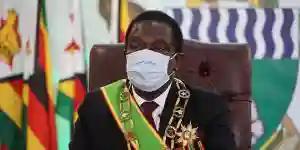Prominent Economist Blames Opposition Disunity For Enabling Mnangagwa's Rise

Renowned economist, Godfrey Kanyenze, said disunity among the country’s opposition political parties enabled President Emmerson Mnangagwa’s ascendancy and left some western embassies with no option but to support him.
This was revealed in the economist’s latest book titled, “Leaving So Many Behind: The Link between Politics and the Economy.”
Kanyenze said Zimbabwe’s opposition movement has made some decisions that have separated it from its founding social base. Says the book in part:
A major development that signified the separation of the MDC-T from its social base was the decision by the National Constitutional Assembly, which had been part of the vibrant social movement of the late 1990s and played a role in the formation of the MDC, to transform itself into a political party on 28 September 2013.
Meanwhile, the post-election self-introspection within the main opposition party MDC-T created disunity within the party.
HOT DEALS:
itel A70 - (128GB, 3GB RAM) $89,
itel A70 - (256GB, 4GB RAM) $99
itel P40 (128GB, 4GB), (6000mAh) $99
itel P40 (64GB, 4G), (6000mAh) $93
Cash on Delivery in Harare & Bulawayo. Tinotumira kwamuri inosvika.WhatsApp: 0783 450 793
The manuscript also mentions former Energy Minister Elton Mangoma’s advice to then MDC-T president Morgan Tsvangirai to step down and facilitate leadership renewal and his assault by party activists and eventual expulsion also weakened the opposition.
Then MDC-T Secretary General Tendai Biti condemned these developments and expressed his support for the issues raised by Mangoma.
Mangoma and Biti’s departure from MDC-T further weakened the party, and Kanyenze noted that the splinter groups which left MDC-T continued to be fragmented along the way. The book says:
By the time the 2018 elections were convened, Zimbabwe Elections Commission (ZEC) confirmed the existence of 75 political parties contesting elections up from 35, a scenario that reflects a fragmented opposition.
Given the developments in the opposition parties, some western embassies were quite happy to work with the opposing factions in the ruling party.
The thinking that then-vice president Emmerson Mnangagwa, working with the opposition and civil society, offered the best prospects for a stable transition out of the economic crisis was propagated by the influential British think-tank, Chatham House in its report entitled; ’The Domestic and External Implications of Zimbabwe’s Economic Reform and Re-engagement Agenda’, released in September 2016.
… While the report observed that Mnangagwa was not widely popular and had a difficult legacy associated with Gukurahundi, he however was considered as having strong liberation war credentials and had forged close links with the military and the War Veterans, who were now at loggerheads with their patron Mugabe.





